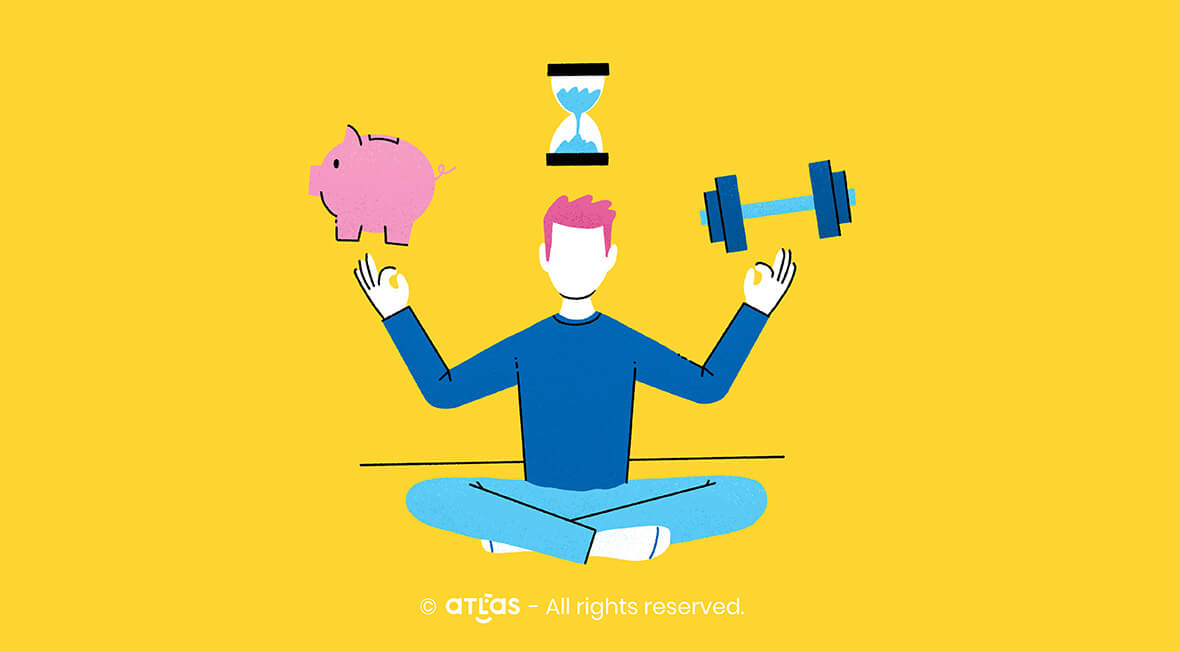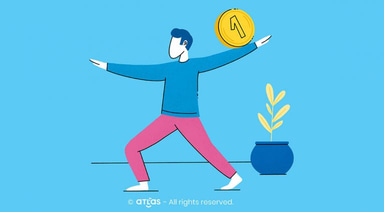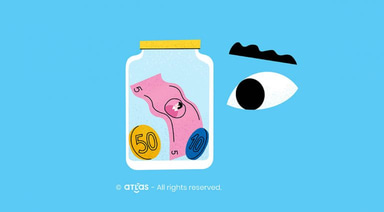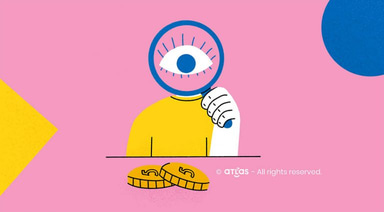We want mental health, we try to keep it, or we always recover the physical one, and we crave financial health. The order can, of course, be reversed. About the differences, but also about the close connection between mental, physical and financial, knows everything our specialist in financial education Mihai Constantinescu.
Several medical studies reveal that by the age of 30, the human body compensates for many of the adverse effects that poor nutrition, smoking and alcohol have on it. At the same time, from the age of 30, the ageing process begins, and muscle tissue begins to be replaced with fatty tissue.
After the age of 30, some health problems related to disordered lifestyles, such as obesity, diabetes and the like, also begin to appear. If the lifestyle does not improve until the age of 40, then there is a good chance that real health problems will occur or, if there are, they will get more serious.
The same goes for financial health. Up to the age of 30, you can make many financial mistakes, such as buying a car whose rate exceeds half of your income, spending all your income in the first week after your salary and then surviving on your debt, and the list of examples can go on.
The important thing is to understand that after the age of 30, the need to change financial habits is becoming increasingly important. To change financial practices, we need to be aware that we are starting to have financial problems. Secondly, we should assess our current financial situation and start finding ways to improve it.
Financial and physical health
Making an analogy with the need to improve the lifestyle by the age of 40 to help the body age nicely and avoid, as far as possible, the appearance of diseases, so must our financial situation be improved. Otherwise, we can expect that after the age of 40, our financial situation will deteriorate further and an exit from this unpleasant situation will be challenging to do.
Financial and oral health
Going forward with the analogy, we can compare financial health with the health of our teeth. Without healthy habits, learned from a young age, to brush our teeth twice a day, we will end up, around the age of 30 (in some cases and much earlier), having teeth problems, needing interventions on our teeth and in some cases even reaching their loss.
If by the age of 40 the problems in the teeth are not remedied and their daily care habits do not change, these problems will increase and solving them will be made much harder and at much higher costs. Just as with oral health, financial health should be an area that should interest us as soon as possible. Every year in which we delay in improving our financial situation will make this process more difficult.
Financial and mental health
If the analogy of financial health with other types of health was not sufficient, the last analogy I want to refer to is mental health. As in the other cases discussed above, mental health begins to be more strongly influenced from the age of 30.
The sooner we become aware of the negative impact of the environment on our psyche, the sooner we can seek help and fix small problems that, if left unresolved, can generate the more significant problem in the future. Keeping the analogy, after the age of 40, emotional and mental issues can be more challenging to solve.
Regarding mental health and the link between mental health and financial health, one study found that people diagnosed with depression and anxiety are three times more likely to have financial problems. A small degeneration of mental health may be linked to increased financial difficulties. Try to become aware of your economic issues as quickly as possible and start solving them – financial problems can lead to mental illness such as anxiety, depression and, in extreme cases, suicide.
What does it mean to be financially healthy?
- Understand financial concepts such as Saving, Investing, Speculation, Inflation, Compound interest, etc.
- See what your current financial situation is – in simpler terms, calculate your wealth or your family’s;
- Set clear financial goals;
- Start monitoring your spending and eliminating waste;
- Start saving at least 10% of your income each month;
- Build your emergency fund/safety fund;
- Purchase consumer credits in advance;
- Start investing in retirement/children’s education;
- Increase your income and increase your saving/investment at the same time;
- Pay attention to the fees, commissions and taxes you pay and try to make them more efficient;
- Enjoy a quiet life!
The sooner you start, the better!
To better understand the importance of starting the financial recovery plan as soon as possible, you can find below a simulation of the total amounts you can retire, depending on the age at which you start saving for retirement (assuming the retirement age of 65), if you decide to place monthly, until the age of 65 , an amount of RON 500 and taking an average annual return of 7% and capitalization:

This graph makes it very clear how important it is to start putting your personal finances in order as soon as possible.
Some final ideas:
- If you are between 30 and 40 years old, this is the most crucial time to think about your health, whether we are talking about physical health, oral health, mental or financial health.
- If you are under 30 years old and you are reading this article, I must tell you that I congratulate you from the bottom of my heart and tell you that you are on the road to Financial Independence, time being your most important ally.
- If you are over 40, it is not yet too late to check your financial health and improve it, if necessary.
- Go to your doctor and get routine tests to check your physical health
- Go to your dentist to check your oral health
- Go to the psychologist to check your emotional and mental health
- Go to a financial coach or a consultant to check how you’re doing with your financial health and how you can start improving your personal finances!
If you found the information useful and need guidance to check your financial health and find ways to make your personal finances more efficient, I’m waiting for you with a Financial Coaching session right on the ATLAS platform.
Don’t wait for your financial health to “hurt.” Prevention is the optimal solution!



